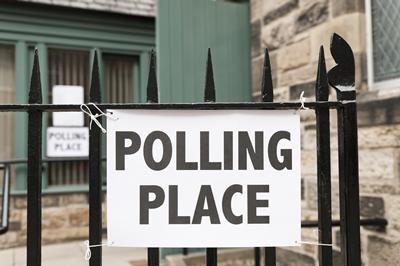General Election Opinion Poll Inquiry, Chaired by Southampton academic, publishes report

The Inquiry set up to investigate inaccuracies in the opinion polls during the 2015 General Election campaign has released its full report.
Chaired by Patrick Sturgis, Professor of Research Methodology at the University of Southampton, the independent Polling Inquiry was set up last May by the British Polling Council (BPC) and the Market Research Society (MRS). University of Southampton Professor of Political Science, Will Jennings was also part of the inquiry panel, which was tasked with establishing the extent of inaccuracies in the polls, the reasons for inaccuracies, and whether the polls were properly communicated to the general public.
Commenting on the report, Professor Patrick Sturgis said: “Opinion polls are subject to many different sources of error and no set of procedures will ever guarantee total accuracy. But how polls are conducted and reported in the UK an and should be improved. We hope the recommendations set out in this report will be taken on board by the polling industry in order to reduce the risk of these kinds of polling errors being repeated in future elections.”
Lord David Lipsey, co-chair of the All-Party Parliamentary Group on Statistics (APGS), said: "Parliamentarians in the APGS warmly welcome Professor Sturgis's authoritative report. Its scrupulous attention to the statistical facts supersedes the uninformed speculation that followed the opinion poll disaster of 2015. In view of the political impact of the polls, Parliament is sure to take a close interest in how the polling industry responds to Professor Sturgis's careful and cautious recommendations."
Twelve recommendations are made to the polling industry in the Report of the Inquiry into the 2015 British General Election opinion polls. The Inquiry recommends a number of changes to British Polling Council (BPC) rules. These include requiring members to pre-register ‘vote intention’ polls before conducting fieldwork and providing statistical significance tests for changes in vote shares between polls. The report also makes recommendations for improving the representativeness of polling samples.Pre-election polls in the 2015 election significantly under-estimated the size of the Conservative lead over Labour, with the final polls incorrectly suggesting a statistical ‘dead heat’. Preliminary findings of the Inquiry, released in January 2016, showed the primary cause of the failure of the polls was unrepresentativeness in the composition of the poll samples. The methods of sample recruitment used by the polling organisations resulted in systematic over-representation of Labour voters and under-representation of Conservative ones. Statistical adjustment procedures were not effective in mitigating these errors.
The recommendations made in this new, full report, include measures to improve the representativeness of quota samples and for better prediction of voter turn-out. The Inquiry identifies probability sampling as a more accurate way of collecting samples of voters, but acknowledges the practical and cost barriers for the industry of using this approach.
In addition, the report suggests an academic led pre and post-election random probability survey for the 2020 General Election, to be funded by the Economic and Social Research Council (ESRC).
The Polling Inquiry report will now be published by the BPC and MRS who will set out their responses to the findings and recommendations.